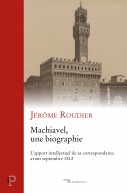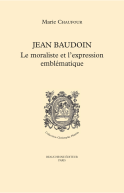Le sacrifice du soir
Collection Cerf Histoire
192 pages - juin 2010
19,00€
Orpheline à l'âge de trois ans, Madame Élisabeth, la petite sœur de Louis XVI, la dernière de la famille, bénéficie pourtant d'une instruction complète. Sportive, passionnée d'équitation, excellente en mathématiques et en dessin, vive, active et rapide, elle étonne son entourage par la diversité de ses talents et la fermeté de son caractère. Avec sa maison princière et ses amies, elle forme une petite cour au milieu de la cour, y faisant régner la piété et la paix. Elle ne se marie pas, n'entre pas au couvent. Sa vocation est de rester avec les siens, le roi, la reine et leurs enfants. Dans les dernières années de l'Ancien Régime, comme avertie de la tragédie, elle se prépare pour les secourir. A partir de 1789, elle les assiste et les réconforte. Refusant de les abandonner, elle quitte avec eux Versailles pour les Tuileries, et les Tuileries pour la prison du Temple. Après le roi et la reine, elle est guillotinée. Le régime ne peut pas l'épargner. Elle est son ennemie. Elle a toujours vu dans la Révolution un mensonge et une illusion. Elle a toujours déploré la faiblesse de son frère, et n'a jamais pu y remédier. Ange consolateur, grande figure de la résistance spirituelle à la persécution antichrétienne, elle est aussi l'exhortatrice. Elle encourage ses amies à la perfection chrétienne. Dans la voiture du retour de Varennes, elle convertit Barnave à la cause du roi. Sur le chemin de l'échafaud, elle exhorte à la mort ses compagnons de supplice. Puis elle quitte ce monde sans regret, tout à l'espérance de se « retrouver dans le sein de Dieu » avec sa « famille ».
--
Orphaned at the age of three, Madame Élisabeth, Louis XVI’s little sister and the baby of the family, nevertheless received from a good education. Fond of sports, a keen horse-rider, excellent in mathematics and drawing, lively, active and quick, she astonished her entourage wuth the diversity of her talents and her strength of character. With her princely family and friends, she formed her own little private court, imposing piety and peace at the heart of the royal one. She did not marry, nor did she enter a convent. Her vocation was to stay with her family, the king, the queen and their children. In the final years of the Ancien Régime, as though forewarned of the tragedy, she developed a strategy to rescue them. From 1789 onwards, she helped and comforted them. Refusing to abandon the royal family, she left Versailles with them for the Tuileries, and the Tuileries for the prison of the Temple. After the king and queen, she was guillotined in her turn. The regime could not spare her life; she was an enemy. She had always perceived the Revolution as a lie and an illusion. She had always deplored the weakness of her brother, and had never been able to remedy it. A consoling angel, a great figure of spiritual resistance to anti-Christian persecution, she also encouraged others, urging her friends to achieve Christian perfection. In the coach returning from Varennes, she converted Barnave to the king’s cause. On her way to the scaffold, she heartened her fellow prisoners who were also facing the guillotine. Then she left this life without regret, in the hope of "finding herself in the bosom of God" with her family.
--
Orphaned at the age of three, Madame Élisabeth, Louis XVI’s little sister and the baby of the family, nevertheless received from a good education. Fond of sports, a keen horse-rider, excellent in mathematics and drawing, lively, active and quick, she astonished her entourage wuth the diversity of her talents and her strength of character. With her princely family and friends, she formed her own little private court, imposing piety and peace at the heart of the royal one. She did not marry, nor did she enter a convent. Her vocation was to stay with her family, the king, the queen and their children. In the final years of the Ancien Régime, as though forewarned of the tragedy, she developed a strategy to rescue them. From 1789 onwards, she helped and comforted them. Refusing to abandon the royal family, she left Versailles with them for the Tuileries, and the Tuileries for the prison of the Temple. After the king and queen, she was guillotined in her turn. The regime could not spare her life; she was an enemy. She had always perceived the Revolution as a lie and an illusion. She had always deplored the weakness of her brother, and had never been able to remedy it. A consoling angel, a great figure of spiritual resistance to anti-Christian persecution, she also encouraged others, urging her friends to achieve Christian perfection. In the coach returning from Varennes, she converted Barnave to the king’s cause. On her way to the scaffold, she heartened her fellow prisoners who were also facing the guillotine. Then she left this life without regret, in the hope of "finding herself in the bosom of God" with her family.
- Dimensions : 145x235x15
- ISBN : 9782204091633
- Poids : 320 grammes
DU MÊME AUTEUR
Le Livre noir de la Révolution française
800 pages - janv. 2008
> VOIR TOUS LES LIVRES DE l'AUTEUR
DANS LA CATÉGORIE BIOGRAPHIES
Les Petites Heures de Madame Bourtonbourt à la mode de Namur
d' Ernest Dejaifve
232 pages - févr. 2007









